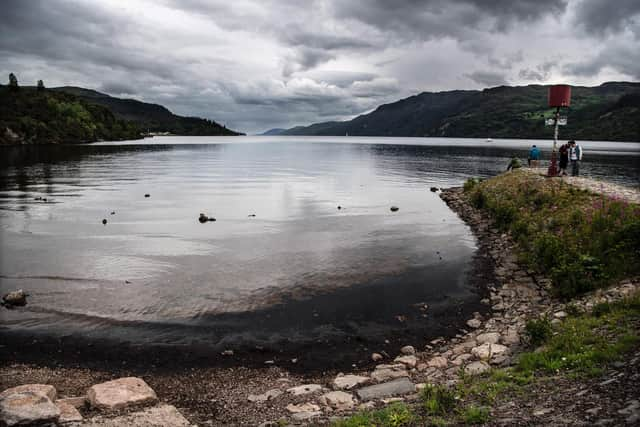After SNP-Green coalition drops 2030 climate target, can they be trusted to prepare Scotland for droughts, water shortages and wildfires? – Scotsman comment
There are two main tasks associated with global warming: first, to reduce the carbon emissions driving temperatures ever higher and, second, to adapt to changing environmental conditions. The Scottish Government’s recent decision to ditch its 2030 emissions target may feel rather theoretical to some. An embarrassing failure, yes, but not one with an immediate impact.
However, the deadlines for ensuring the country can weather the growing storm are more pressing than many would like to believe. These are targets that cannot be abandoned lightly, and blaming Westminster will not help at all.
Advertisement
Hide AdAdvertisement
Hide AdA recent article in the Financial Times, headlined “The uninsurable world: what climate change is costing homeowners”, noted that last year saw a record number of 37 natural catastrophes resulting in more than $1 billion-worth of insurance losses worldwide. Such large disasters are rare in the UK, but the Bank of England has estimated seven per cent of UK households will be uninsurable if global warming reaches 3.3C by 2050.
Water rationing
Damage to property is far from the only danger. Even in Scotland, a country known for rain, experts are warning that immediate action needs to be taken to stop water shortages becoming a problem. While winters in this country are becoming milder and wetter, our summers are getting hotter and drier.
Already droughts in 2018 and 2022 have prompted water rationing in some areas, once an unthinkable idea. Farmers were ordered to stop taking water to irrigate their crops; whisky distilleries had to stop production; councils delivered emergency water supplies to households whose private wells dried up; and fish died as river levels fell too low.


Dr Sarah Halliday, of the University of Dundee, said: “There is a widespread misconception that water resources are always abundant across Scotland because it’s always raining, and this has led to this precious resource being largely undervalued. However, we are experiencing more extremes in our weather, and while this can result in very intense rainfall events, it can also lead to much longer periods of lower rainfall. Added to this, we are also seeing the demand for water increase, which combined with periods of reduced available water is increasing our national vulnerability to water scarcity.”
She led a study that concluded people need to change the way they use water as part of measures to ensure the country is more resilient to periods of low rainfall. Currently the typical customer in Scotland uses a staggering 180 litres a day, which is “significantly higher” than other parts of the UK and Europe. The danger is that, in warmer weather, people will increase their water usage, exacerbating the problem.
‘Woefully underprepared’
In addition to a shift in the public’s attitude towards water, there will also, doubtless, be measures that our water companies can take to reduce leaks and increase reservoir storage. However this costs money and takes time.
Drought will also bring an increase in wildfires. Last year, the Fire Brigades Union warned the UK was “woefully underprepared” after 2022 saw more than 44,000 wildfires, a 72 per cent increase on 2021.
If people look out the window to see a nearby hillside in flames, then turn on the tap to discover there is no water, climate change may suddenly feel very real. Facing such realities, Scotland needs a government that can take the necessary, practical steps.
Advertisement
Hide AdAdvertisement
Hide AdThe SNP-Green coalition talked a good game on cutting emissions, but then failed to deliver. With that in mind, can they be trusted to prepare Scotland for summer droughts and winter floods? This is a question that voters must answer. The consequences of getting it wrong may be profound.
Comments
Want to join the conversation? Please or to comment on this article.
